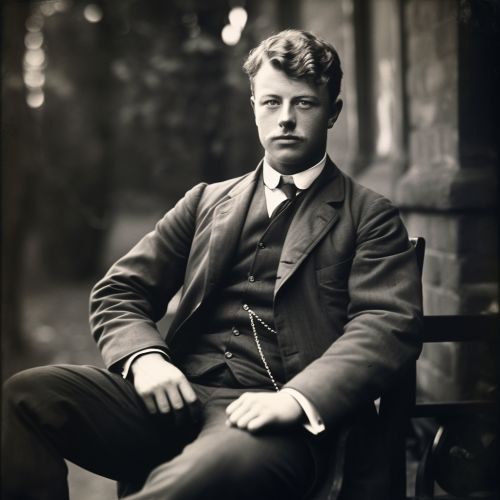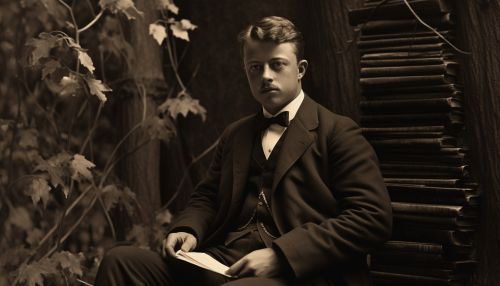Theodore Roosevelt
Early Life
Theodore Roosevelt was born on October 27, 1858, in New York City, the second of four children of Martha "Mittie" Bulloch and Theodore Roosevelt Sr., a wealthy businessman. His family was of Dutch origin and had been in America since the mid-17th century. As a child, Roosevelt struggled with severe asthma, which shaped his robust approach to life. He was homeschooled due to his health issues, which allowed him to indulge in his passion for animal life and natural history.
Education and Personal Life
Roosevelt attended Harvard University, where he studied natural history and excelled in boxing. After graduating in 1880, he enrolled at Columbia Law School, but soon lost interest and dropped out to pursue a career in public service. In the same year, he married Alice Hathaway Lee, with whom he had a daughter. Tragically, Alice died shortly after giving birth, a loss that deeply affected Roosevelt.


Early Political Career
Roosevelt began his political career as a member of the New York State Assembly, where he served from 1882 to 1884. As an assemblyman, he was known for his aggressive approach to reform and his commitment to honesty. In 1884, after the death of his wife and mother, Roosevelt left politics and moved to the Dakota Territory, where he lived as a cattle rancher and sheriff. However, the severe winter of 1886-1887 destroyed his herd, forcing him to return to New York and reenter politics.
Civil Service Commission and Police Commissioner
In 1889, President Benjamin Harrison appointed Roosevelt to the United States Civil Service Commission, where he served until 1895. As a commissioner, he fought against patronage and sought to enforce the merit system in civil service hiring and promotions. In 1895, he became the President of the New York City Police Commission, where he implemented reforms to combat corruption and improve the efficiency of the force.
In 1897, President William McKinley appointed Roosevelt as Assistant Secretary of the Navy. He was instrumental in preparing the navy for the Spanish-American War and advocated for a strong and modern navy as a necessity for national security.
Rough Riders and the Spanish-American War
During the Spanish-American War, Roosevelt led the 1st United States Volunteer Cavalry, also known as the "Rough Riders," in the famous charge up San Juan Hill in Cuba. His leadership and bravery in the war made him a national hero and bolstered his political career.
Governor of New York and Vice President
After the war, Roosevelt was elected Governor of New York. As governor, he continued his reform efforts, focusing on corporate malfeasance and urban corruption. In 1900, he was selected as McKinley's running mate in the presidential election. They won, but McKinley's assassination in 1901 thrust Roosevelt into the presidency.
Presidency
Roosevelt's presidency (1901-1909) was marked by his "Square Deal" domestic policies, which sought to balance the interests of business, consumers, and labor. He was a strong advocate for conservation, establishing numerous national parks, forests, and monuments. He also pursued an aggressive foreign policy, exemplified by the construction of the Panama Canal and his corollary to the Monroe Doctrine.
Post-Presidency and Death
After leaving office, Roosevelt embarked on a safari in Africa and a tour of Europe. In 1912, he made an unsuccessful bid for the presidency as the candidate of the Progressive Party. He continued to write and stay active in politics until his death on January 6, 1919.
Legacy
Roosevelt's legacy is vast and varied. He is remembered as a conservationist, a reformer, and a war hero. His energetic personality and robust masculinity became iconic, and his approach to foreign policy, known as "Big Stick" diplomacy, has had a lasting impact on American foreign policy.
